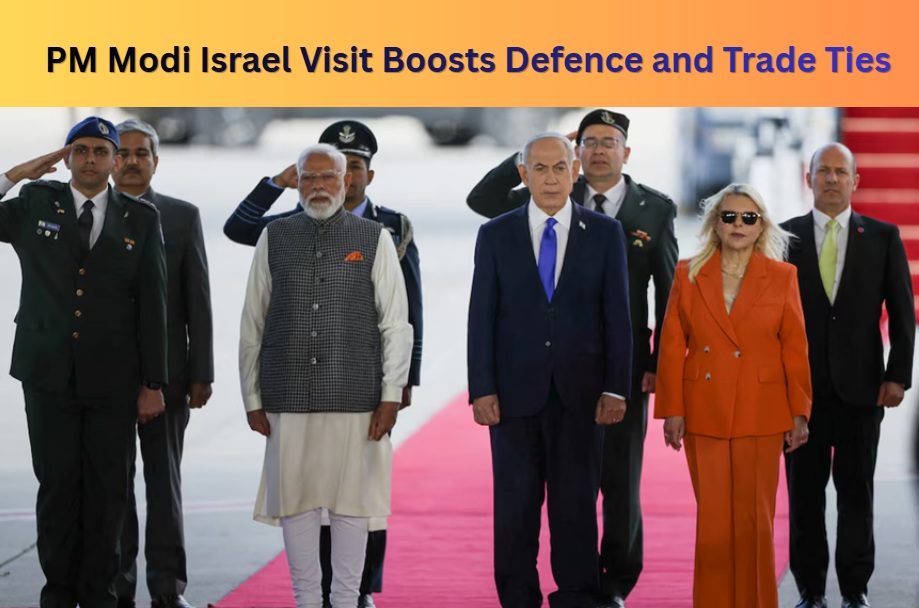The devastating terrorist attack in Jammu and Kashmir’s Pahalgam on April 22, which claimed the lives of 26 people—mostly tourists—was not a spontaneous act of violence, but the outcome of a meticulously planned cross-border operation. According to intelligence sources cited by The Times of India, the plot was orchestrated by Pakistan’s notorious spy agency Inter-Services Intelligence (ISI) in collaboration with the Lashkar-e-Taiba (LeT) terror group. The operation, carried out entirely by Pakistani nationals, is now being compared to the scale and secrecy of the 26/11 Mumbai attacks.
An ISI-LeT Joint Operation with Clear Political and Military Backing
Sources within India’s security establishment have confirmed that the attack was not just a rogue terror act but a coordinated assault executed under the guidance of Pakistan’s political and military leadership. The ISI had reportedly issued direct orders to Lashkar commander Sajid Jutt, instructing him to mobilize only foreign (i.e., Pakistani) operatives for the mission, ensuring no Kashmiri militants were involved. This measure was taken to minimize local footprints and tighten operational secrecy.
The plot was reportedly spearheaded by Suleman, a suspected ex-commando from Pakistan’s Special Forces who received training at the LeT camp in Murid, Punjab province. Suleman had infiltrated Indian territory in 2022, armed with an M4 assault rifle, and had been quietly lying low, awaiting the activation signal for the deadly assignment.
Congress Faces Political Heat Amid New Intelligence Disclosures
The fresh revelations have put the Congress party in a tight spot. At a press conference held earlier in the day, Congress leaders raised concerns over the government’s failure to explain the Pahalgam incident even after 85 days. They questioned the security lapse and demanded accountability, drawing parallels to the Pulwama attack, where similar political finger-pointing had occurred.
Congress’ criticism gained traction after Jammu & Kashmir Lieutenant Governor Manoj Sinha publicly accepted responsibility, stating, “If there was any security lapse in Pahalgam, I am accountable.” However, with the TOI report now revealing compelling evidence of Pakistan’s direct involvement, the narrative has sharply turned. What initially appeared as a domestic intelligence failure is now being recognized as a high-level foreign-orchestrated assault.
The Congress party, which has often questioned the origins of major terror attacks, now finds itself cornered. Critics argue that their skepticism of India’s official line on previous terror incidents plays into Pakistan’s hands, especially when Indian opposition leaders’ remarks are echoed by hostile foreign actors at international forums like the UN.
Digital Trail, Ground Intelligence Uncover Full Conspiracy
Indian intelligence agencies have gathered substantial evidence tying the attack to Pakistan. According to the findings:
Only Pakistani nationals were involved in the Pahalgam killings.
No Kashmiri militants were informed or involved in the operational planning.
Operatives, including Suleman, were instructed to use local assets only on a need-to-know basis, mainly for logistics.
The attack site at Basran Valley was under surveillance by Suleman at least a week prior to the assault, as confirmed by satellite phone tracking.
Suleman was also involved in a previous April 2023 attack on an army truck that killed five Indian soldiers. He had remained hidden in the Valley afterward.
Two locals, Parvez Ahmed Jothar and Bashir Ahmed Jothar, were arrested last month by the National Investigation Agency (NIA). Their role appears limited—they allegedly provided food and shelter to the terrorists for a small payment. They are now believed to have been the key informants who identified Suleman and exposed the details of the attack.
Security Oversights and Operational Gaps Acknowledged
Adding to the complexity is the administrative lapse that allowed the attack to occur. The area in question—a scenic but isolated meadow—had just reopened to tourists three days before the attack following a break in the rains. However, critical security arrangements were missing.
The Jammu & Kashmir Tourism Development Corporation had leased the area to a private tour operator, but not all clearances had been obtained, and full payment had not been received. Despite lacking formal authorization, the operator opened the site to the public. This left the area without security infrastructure or personnel, making it an easy target.
Lieutenant Governor Sinha has acknowledged this lapse during an all-party meeting and has accepted personal responsibility. The state administration is now reviewing protocols to prevent such vulnerabilities in the future.
Implications for Internal Politics and National Security
The revelations have sparked a political firestorm. The Congress, which initially appeared to capitalize on the incident to highlight security failures, is now on the defensive. With clear evidence of Pakistan’s involvement, opposition claims of internal mismanagement are being viewed with skepticism, if not outright hostility.
For national security agencies, the attack has exposed the continuing threat posed by Pakistani-based terror outfits operating with state support. More worrying is the evolving strategy of these groups: reduced reliance on local militants, greater operational insulation, and increasingly professional execution.
Conclusion
The Pahalgam terror attack is a grim reminder that while India battles internal political divisions, its external adversaries continue to plot with deadly intent. The revelations from Indian intelligence agencies underscore not just the role of Pakistan in orchestrating this attack, but also the importance of unity and caution in the domestic political discourse surrounding national security. With the main conspirators identified and several leads being actively pursued, the Indian security apparatus now has a clearer picture of the threat—and the task that lies ahead.
#pahalgamattack #baisaranvalley #26/11attack #jammu #jammukashmir #let #isi #punjab #pakistan #pakistanterror #kashmirterrorattack #sajidjutt #sulaimanterrorist #terrorisminkashmir #lashkaretaiba #indiasecurityforces #jammuandkashmir #poonchattack #tralforest #niainvestigation #crosslocinfiltration #toursim #touristattackkashmir #indiavsterrorism,





